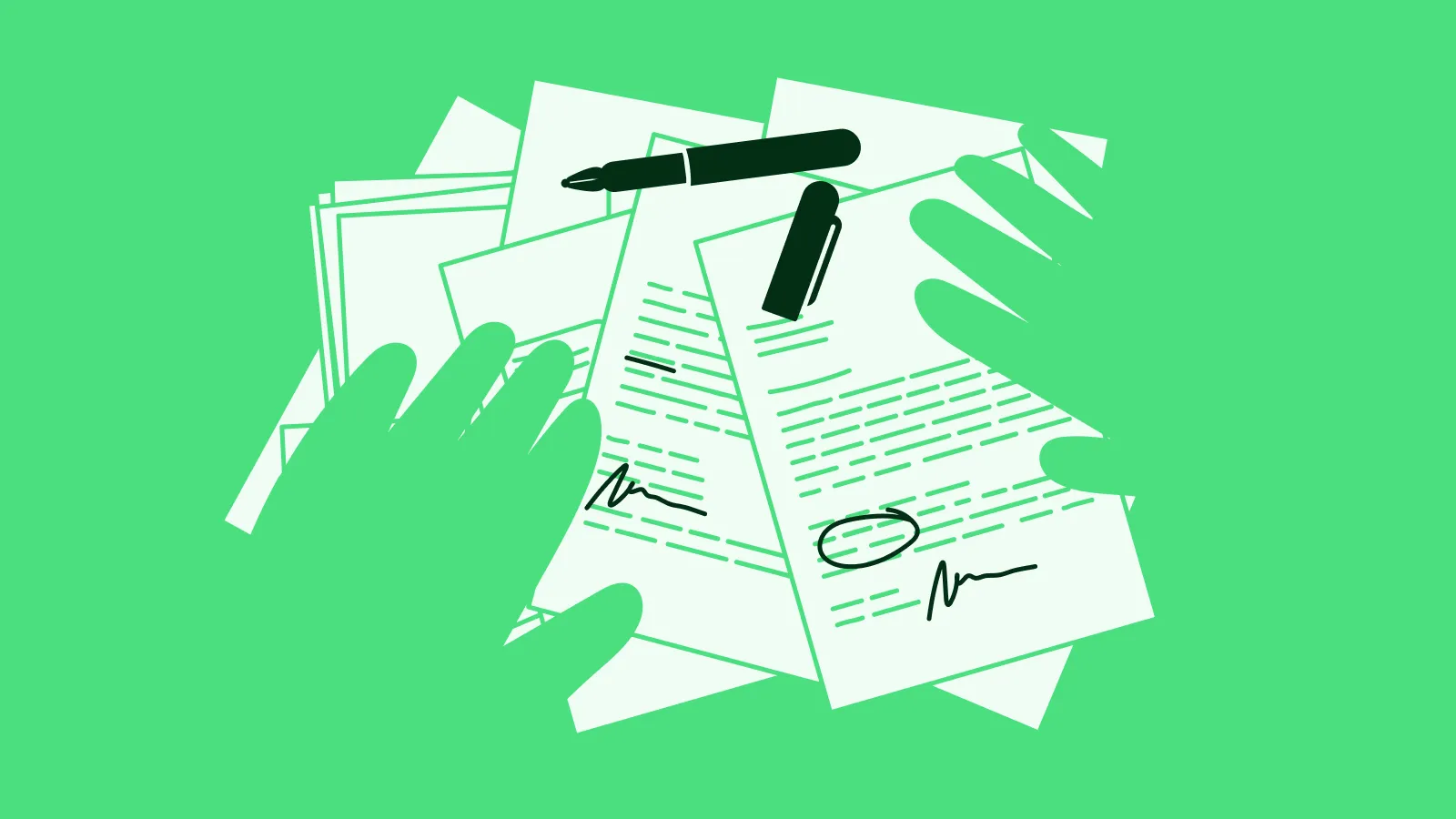Mortgages For First-Time Buyers
Our mission is to keep your first mortgage journey simple and stress-free!
Your home may be repossessed if you do not keep up repayments on your mortgage.
Exclusive broker partner to

Author: Michael Whitehead, Head of Content
Reviewer: Paul Coss, Haysto Co-Founder and Chief Customer Officer
Updated: Aug 22 2025 9 mins
First time getting a mortgage? Feeling nervous? Don’t worry, that’s the way everyone feels - like the first time riding a bike, it gets easier once you know how! We can help you navigate all the unknown twists and turns to make your very first mortgage journey much more straightforward.
Don’t feel worried or concerned if you haven’t a clue how to get a mortgage at this stage - remember, it’s your first time! After looking through our mortgage guide for first-time buyers, you’ll have a much clearer understanding of what’s involved.
Have you read our guide to Buying a Home? We’ve broken down every stage of the home-buying process in detail, making it easy to follow. It’s perfect for anyone who’s about to take their first steps onto the property ladder.
What Is a First-Time Buyer?
It may seem like a fairly straightforward question, but the reality is that the definition of a first-time buyer is slightly more complex than you may think. In fact, a more accurate term to use would be ‘first-time homeowner’.
Most mortgage lenders use a definition based on HMRC’s interpretation (for the purpose of Stamp Duty Land Tax): a first-time buyer is someone who is buying their first home and has never previously owned a property before in the UK or ‘anywhere in the world’.
This could mean if you’ve previously inherited a property or been gifted one and have since sold it, you would no longer be seen as a first-time buyer, even though you haven’t technically ‘bought’ a home before.
Some mortgage lenders have a less rigid stance on first-time buyers and could still classify you as one if you haven’t owned a property for a number of years. But, for government mortgage schemes and Stamp Duty, the definition is based on whether you’ve ever owned a home before.
How Much Can a First-Time Buyer Borrow?
As a starting point, multiply your current annual earnings by either 4 or 4.5 times to get an indication of how much you can borrow for a mortgage. This is the typical equation used initially by mortgage lenders.
So, if your annual salary is £30,000, as a rough guide, you could be able to borrow between £120,000 and £135,000 for a mortgage. Bear in mind that this is purely an estimate at this stage - some mortgage lenders use higher income multipliers and some lower.
A mortgage lender can only confirm the exact amount you can borrow once they’ve conducted a full affordability assessment and reviewed your application.
To see how this might work out for you, based on your annual income, take a look at our quick and easy-to-use affordability calculator.
Potential property value:
Your deposit:
You could borrow:
Based on x your income at £, plus your deposit of £.
Speak with one of our experts today to learn more about your options.
Get Started NowThis calculator provides an estimate of how much you may be able to borrow for a mortgage based on the information you have entered. The figures are for illustrative purposes only; the actual amount you can borrow may differ, and this does not constitute either a mortgage offer or a mortgage in principle (MIP).
Your home may be repossessed if you do not keep up repayments on your mortgage.
What Will the Mortgage Repayments Be?
Your monthly mortgage repayments will depend on the:
Loan amount
Mortgage term
Mortgage rate
You can use our mortgage repayment calculator below to see what the amount you're looking to borrow could cost you each month and check if this fits with your budget.
Mortgage Type
With a repayment mortgage you repay all the capital and interest during the term. For interest-only, you only repay the interest amount each month and the capital is repaid in full at the end of the term.Your monthly repayment:
Total amount repayable:
Total interest payable:
Speak with one of our experts today to learn more about your options.
Get Started NowThis calculator provides an estimate of your monthly mortgage repayments based on the information you have entered. The figures are for illustrative purposes only, your actual payments may differ, and this does not constitute a mortgage offer.
Your home may be repossessed if you do not keep up repayments on your mortgage.
How to Prepare for Your First Mortgage
There’s quite a bit to think about when you’re buying a home, and if this is your first time, it’s perfectly understandable to feel a little lost and unprepared. Here are some useful tips to help you to get ready for the mortgage application process:
Start Saving!
For first-time buyers, the minimum mortgage deposit you’ll need is 5%, but the bigger your deposit, the more competitive mortgage rate deals are available. So, try and save as much as you can for this purpose.
If you’re struggling to save all of the money from your income or don’t yet have enough personal savings - don’t panic! Mortgage lenders will accept a range of other deposit sources, such as a gift or inheritance from a close family member.
It’s also important to budget for all the other upfront costs, such as:
Stamp Duty (if applicable - see section below).
Solicitor/Conveyancing fees (£500–£1,500).
Mortgage arrangement fees (£0–£2,000).
Property survey (£300–£1,000).
Check Your Credit Score
One of the first things to do early on in the home-buying process is to download a copy of your Credit Report* to make sure there’s nothing untoward that could hinder your mortgage application further down the line.
If there is, then knowing now gives you time to correct any errors or remove outdated information by asking the relevant Credit Reference Agency (there are three main ones in the UK: Experian, Equifax and TransUnion) to update their records.
Register on the Electoral Roll
It may sound strange, but not registering to vote can affect your credit score and, therefore, could lead to your mortgage application being rejected.
Being registered makes it easier for lenders to prove your identity and that you’ve provided the correct current address details. So double-check you’re registered BEFORE you submit your mortgage application.
Manage Your Finances
It’s important to keep a sharp eye on your finances, particularly in the weeks and months leading up to applying for a mortgage. Some of the actions you should take include:
Don’t submit any other credit applications unless absolutely necessary
Pay down any other shorter-term debts and keep credit card spending at a minimum
Make sure your bills are paid via direct debit and are all up to date
Only use your overdraft if it’s an emergency
Review your outgoings and cancel any unnecessary payments and/or subscriptions
Keep cash withdrawals to a minimum
Avoid excessive gambling (a flutter every now and then should still be fine)
Choose Your Mortgage
Do your mortgage research beforehand - think about which repayment method you’d prefer (capital repayment is the usual option for residential mortgages and interest-only for investment/rental properties) and for how long you’d want the mortgage term to be.
Also, consider what type of mortgage deal you’d prefer - would a fixed-rate deal, where the payments remain the same throughout the term, suit your circumstances best, or would you be prepared to take more of a gamble and opt for a variable-rate deal?
If you’re still unsure, take a look through our guide: Choosing Your Mortgage.
Apply for a Mortgage In Principle (MIP)
It’s highly recommended to have a Mortgage In Principle (MIP) in place when you start looking for properties. It not only gives you an estimate of how much you could borrow, but it also helps when deciding on which properties are within your budget and shows a seller you’re a serious buyer.
A MIP is usually only valid for 60 to 90 days. So, be mindful of this, and if your property search takes longer than you expected, you might need to apply for another one.
If you're ready to apply for a Mortgage in Principle, just make an enquiry and we'll help you get started. But, if you need some more information first, find out everything you need to know in our guide: How to Get a Mortgage in Principle.
Prepare Your Paperwork
As a first-time buyer, you won’t be familiar with the documentation needed for the mortgage application process. The usual documents and proof of earnings required include:
Your last three months' bank statements
Your last three months' payslips
Proof of any bonuses/commission you’re including as part of the affordability checks
Your latest P60 tax form (showing income and tax paid from each tax year)
Your last three years' certified accounts or SA302 tax calculation and tax year overview (if self-employed)
Proof of deposits (e.g., savings account statements)
ID documents (usually a passport)
Proof of address (e.g., utility bills or credit card bills)
As you can see, it’s a fairly lengthy list, so it’s a good idea to start organising your paperwork beforehand to avoid unnecessary delays. You can read more about the mortgage application process in our guide: How to Get a Mortgage.
Speak to a Mortgage Broker
One key benefit of seeking the help of a mortgage broker for first-time buyers is that they can act as your guide to getting a mortgage. They can offer advice on the mortgage options available and help you gather all the paperwork needed to complete your application.
Why Pick Picnic?
With access to thousands of mortgage products, easy-to-use technology, and 100+ experts, our award-winning service is with you every step of the way.
Your home may be repossessed if you do not keep up repayments on your mortgage.
Do You Need a Perfect Credit Score?
No, you don’t. It’s a myth that there’s one magic credit score number that means you’ll automatically get a mortgage. Of course, having a healthy credit record and a high score will naturally give you a better chance, so it’s important to maintain a positive credit track record.
Your credit score is just one of several key factors that could affect your application - both for good or bad. For example, you could have an excellent credit rating but not enough disposable income to prove that you can afford the mortgage repayments.
What if You Have Adverse Credit?
Getting a mortgage is still possible. It all depends on the type of adverse credit issue you’ve had, the amounts involved, how much it has affected your credit score, and when it happened. Choosing the right mortgage lender will also be very important.
Several mortgage lenders (all of which have strong working relationships with us) specialise in helping people with bad credit and assess applications on a case-by-case basis. You may have to pay a slightly higher interest rate and possibly be limited in how much you can borrow, but this gives you a better chance of taking your first step onto the property ladder.
To find out more, take a look at our guide: How to Get a Mortgage With Bad Credit.
Mortgage Schemes for First-Time Buyers
There are several special incentive mortgage schemes - some of which are backed by the UK Government - available to help first-time buyers get a mortgage with a minimum deposit and buy a property, such as:
First Homes Scheme. Available in England only and designed to help first-time buyers and key workers buy properties in their local area at a discount of 30% to 50% of the original value.
Shared Ownership. This scheme allows you to buy part of a new property - usually between 25% to 75% - and then pay rent to a housing association on the remainder. The deposit you pay is based on the amount you buy, not the total property value.
Deposit Unlock. Offers you the opportunity to buy a brand new home with just a 5% deposit and use a 95% loan-to-value (LTV) mortgage for the remainder. This scheme is backed by a mortgage indemnity, paid for by developers, to encourage more lenders to offer higher LTV lending on new properties.
Freedom to Buy Scheme. Similar to Deposit Unlock, but backed by the government, it also offers someone with a low deposit (minimum 5%) the chance to get onto the property ladder. Unlike Deposit Unlock, you can consider buying either new or pre-existing properties.
In addition to the schemes already mentioned above, if you’re currently either a council or housing association tenant, you can apply to purchase the property you’re renting at a discount through the following schemes:
Right to Buy (council)
Right to Acquire (Housing association)
Do First-Time Buyers Have to Pay Stamp Duty?
Potentially, but not unless the property you’re buying is valued at over £300,000. Up to that point, the Stamp Duty rate is 0% for first-time buyers. For properties worth between £300,001-£500,000, the rate is 5%. For properties over £500,000, standard Stamp Duty rates apply.
For more information on this and all other aspects of Stamp Duty Land Tax (SDLT), read our guide: How Stamp Duty Works.
Why Do You Need a Solicitor to Buy a House?
Solicitors play a vital role in the home-buying process, as they handle all the legal and conveyancing work needed for you to complete your purchase, such as:
Transferring ownership of the property with the Land Registry to your name from the sellers.
Arranging all the necessary payments and money transfers - mortgage funds, deposit, etc. - to complete the sale.
Carry out all the local authority searches (checking for flood risks, planning restrictions, etc.)
Communicate with the seller’s solicitor to arrange the exchange of contracts and completion date.
Essentially, your solicitor protects you during the homebuying process and ensures that no legal impediment prevents the sale from being completed. Your can find out more about this crucial stage in our guide: How Conveyancing Works.
Start Your Very First Mortgage Journey with Picnic
With the right preparation and guidance, navigating the mortgage landscape as a first-time buyer can be a much smoother experience than you might have anticipated.
Understanding the process and all the options available allows you to make the right decisions that fit with what you want for your first home. That’s where we can help!
At Picnic, we understand that your first mortgage journey can often feel overwhelming. But, with our assistance, we can make sure you move through each stage with confidence and clarity.
If you’re ready to make your first move, all you have to do is make an enquiry and one of our Mortgage Experts will contact you to get started.
Related Pages
The Picnic Guide To Buying a Home

How Conveyancing Works

How Stamp Duty Works

Choosing Your Mortgage

Speak to One of Our Experts
First or next move, remortgaging or investing - get clear advice from our award-winning experts to help you find the right mortgage.
Your home may be repossessed if you do not keep up repayments on your mortgage.